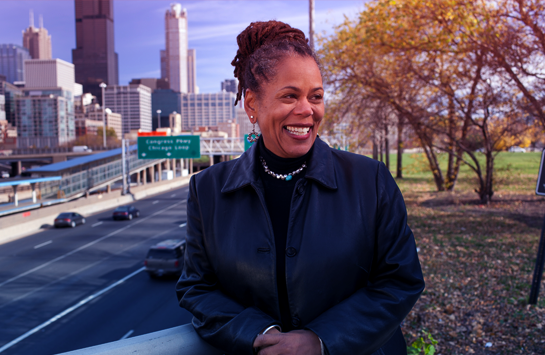What We're All About Heading link

The Department of Criminology, Law and Justice at UIC is an interdisciplinary Master, Ph.D. and undergraduate program at Chicago’s only urban, public research university. The Department is a thriving academic community of scholars, teachers and students who are dedicated to all forms of academic inquiry under the broad umbrella of criminology, law and society, and the study of justice. The members of our faculty, who are well-published scholars in their fields, mentor students to critically examine various justice concerns while adhering to values of diversity, equity, and inclusion.
CLJ Research Clusters Heading link
For more research interests and topics of CLJ faculty, see our Faculty page.
Cluster 1
Intersectional Critical Criminology (Including Critical Theories of Race, Class, Gender, and Disability)
Gender Based Violence and Sexual Assault
Abolition and Alternatives to Incarceration
Policing
Surveillance Studies
Re-entry and Community Supervision
cluster 2
Carceral Studies/ Critical Prison Studies
Courts and Law
Qualitative Criminology
Dimensions of Space and Place In Violence, Crime and Policing
Crimmigration/ Migration/ Mobility
Chicago-area focused research and partnerships
Values Statement Heading link
The Department of Criminology, Law & Justice expresses its solidarity with all who were outraged by the
shocking and senseless police killings of George Floyd, Breonna Taylor, and other Black Americans, both
recently and historically. In the spirit of pursuing teaching, research, and engagement that promotes
understanding and seeks to preclude such atrocities, we declare the following to be true of our work as
a Department:
We are a thriving academic community of scholars, teachers and students who are dedicated to all
forms of critical and comparative academic inquiry under the broad umbrella of criminology, law and
society, and the study of justice.
We uphold our commitment to provide students with the skills to critically analyze interlocking forms of
power and authority, to include how these structures shape punishment, harm, repair and redress.
We affirm our commitment to communities by way of research, advocacy, and public policy, while
supporting efforts aimed at changing the conditions of those enmeshed in the various legal institutions
affecting community well-being.
We recognize the harm that structures beyond the legal system have had on marginalized communities
(reflected in disparities in health, housing, education, employment, etc.) and aspire to build a
community that explores emerging visions of justice (e.g., equitable, transformative, abolition, etc.).


